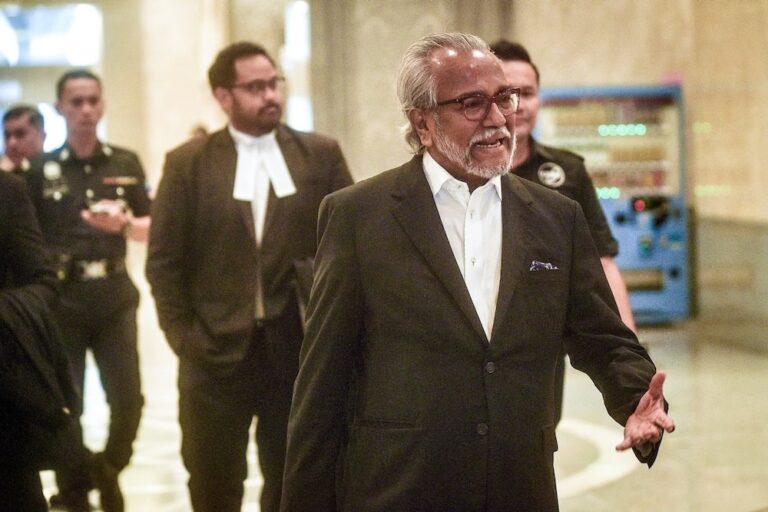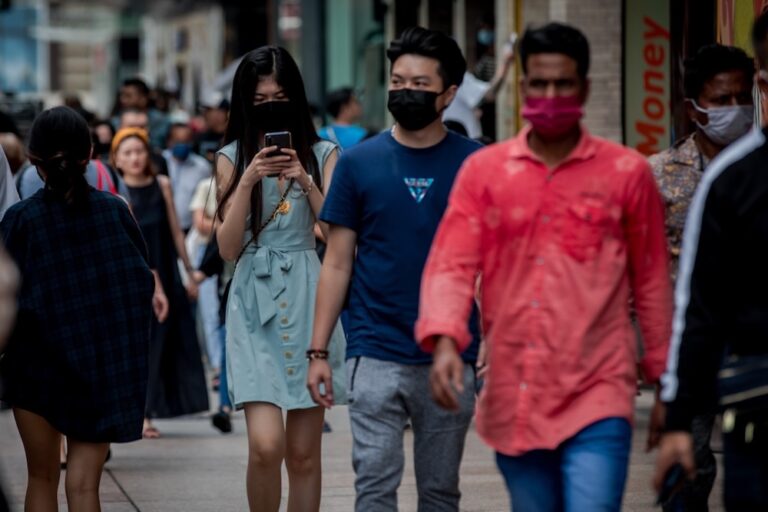(ARTICLE 19/IFEX) – The following is a 3 January 2002 ARTICLE 19 press release followed by ARTICLE 19’s letter to Minister of Home Affairs Dato’ Abdullah Haji Ahmad Badawi: Malaysian Government Pressure on Sun Newspaper Undermines Press Freedom ARTICLE 19 has written to the Malaysian Minister of Home Affairs expressing concern about the interference by […]
(ARTICLE 19/IFEX) – The following is a 3 January 2002 ARTICLE 19 press release followed by ARTICLE 19’s letter to Minister of Home Affairs Dato’ Abdullah Haji Ahmad Badawi:
Malaysian Government Pressure on Sun Newspaper Undermines Press Freedom
ARTICLE 19 has written to the Malaysian Minister of Home Affairs expressing concern about the interference by his Ministry in the operation of the Sun newspaper following the publication of a front-page article on a plot to assassinate the Prime Minister and Deputy Prime Minister, who is also the Minister of Home Affairs. The Sun retracted the story and suspended four staff members following meetings and a “demand” letter issued by the Ministry.
Andrew Puddephatt, Executive Director of ARTICLE 19, said:
“Direct government interference in the operation of a mass media outlet, as happened in the case of the Malaysian Sun newspaper, exerts an unacceptable chilling effect on freedom of expression. This problem is significantly exacerbated by the fact that newspapers are required to obtain permits, renewable annually, from the Ministry of Home Affairs. Interference of this sort is illegitimate regardless of the credibility and accuracy of the story, a matter on which we take no position.
“It was clearly inappropriate for the Ministry of Home Affairs to exert such direct pressure on the Sun newspaper. Government concern about the economy, particularly where the supposed threat is highly tangential, as in this case, cannot justify a restriction on freedom of expression. Furthermore, it is never acceptable for government officials to interfere in the operation of the media. International standards do not permit licensing of the print media, particularly where such licensing is undertaken by the government.”
Pursuant to the 1984 Press and Publications Law, newspapers in Malaysia need to obtain a permit from the Ministry of Home Affairs, which must be renewed annually. The Ministry has in the past issued “show cause” notices to newspapers, calling on them to show why their permits should not be revoked. The practice of meeting with or telephoning newspaper managers is an established practice in Malaysia and well-known as a means of subtle but effective government control over the media.
The letter to the Minister of Home Affairs follows:
3 January 2002
Minister of Home Affairs & Deputy Prime Minister
Dato’ Abdullah Haji Ahmad Badawi
Ministry of Home Affairs (Menteri Dalam Negeri)
Aras 13, Blok D1
Parcel D, Pusat Pentadbiran Kerajaan Persekutuan
65202 Putrajaya, Selangor
Malaysia
By Mail and Fax: +60 3 8886 8014
The Honourable Deputy Prime Minister and Minister of Home Affairs,
I am writing to express my concern over the recent suspension of staff at the Sun newspaper following meetings with Ministry of Home Affairs officials. ARTICLE 19 believes that the pressure exerted by your Ministry on the paper has serious implications for press freedom in Malaysia.
According to our information, on 25 December 2001 the Sun published a front-page story, using anonymous sources, about an assassination plot directed at you and Prime Minister Mahathir Mohammad. On 26 December, the Prime Minister stated that the story could scare away foreign investors and damage the economy of the country. Around the same time, Home Ministry officials held discussions with senior management from the paper and issued some sort of “demand” letter to them. At least in part as a result of this official pressure, the Sun retracted the story and issued an apology on 27 December. The newspaper also suspended its managing editor, Chong Cheng Hai, its chief news editor, Robert Ho, and the two journalists who worked on the story, R. Manirajan and Anita Mohamed Nasir. In addition, the editor-in-chief, H’ng Hung Yong, and another editor, Andy Ng, have resigned.
ARTICLE 19 is of the view that direct government interference in the operation of a mass media outlet, as disclosed by the above events, exerts an unacceptable chilling effect on freedom of expression. This problem is significantly exacerbated by the fact that newspapers are required to obtain permits, renewable annually, from your Ministry. Interference of this sort is illegitimate regardless of the credibility and accuracy of the story, a matter on which we take no position.
Freedom of expression and of information is one of the most important values in a democratic society. In its very first session, in 1946, the United Nations General Assembly adopted Resolution 59(1) which stated, “Freedom of information is a fundamental human right andâ¦the touchstone of all the freedoms to which the United Nations is consecrated.” Freedom of expression implies, among other things, that the media is not subject to interference from the political organs of government. Indeed, one of the key roles of the media in a democracy is to act as ‘public watchdog’, something that is only possible in the absence of government interference.
This does not mean that the media may not be subject to sanction. In democratic countries, laws of general application apply equally to the media, and journalists, as to ordinary citizens. However, such laws must meet international standards of respect for freedom of expression. In addition, the application of laws is overseen by the judiciary, which should be independent of political bias and of government.
In the case at hand, it was clearly inappropriate for the Ministry of Home Affairs to exert direct pressure, in the form of a call to meet and the “demand” letter, on the Sun newspaper. ARTICLE 19 recognises the government’s legitimate concerns about the issues that the Sun story raised. However, concern about the economy, particularly where the supposed threat is highly tangential, as in this case, cannot justify a restriction on freedom of expression. Furthermore, it is never acceptable for government officials to interfere in the operation of the media. International standards do not permit licensing of the print media, particularly where such licensing is undertaken by the government.
ARTICLE 19 calls on you to publicly recognise that the interference by your Ministry officials in this case was inappropriate and to take steps to prevent such interference in future. Furthermore, steps should be taken to amend the 1984 Press and Publications Law so that newspapers do not have to obtain a permit to operate.
Yours truly,
Andrew Puddephatt
Executive Director
Recommended Action
Similar appeals can be sent to:
Dato’ Abdullah Haji Ahmad Badawi
Minister of Home Affairs & Deputy Prime Minister
Ministry of Home Affairs (Menteri Dalam Negeri)
Aras 13, Blok D1
Parcel D, Pusat Pentadbiran Kerajaan Persekutuan
65202 Putrajaya, Selangor
Malaysia
Fax: +60 3 8886 8014
Please copy appeals to the source if possible.


